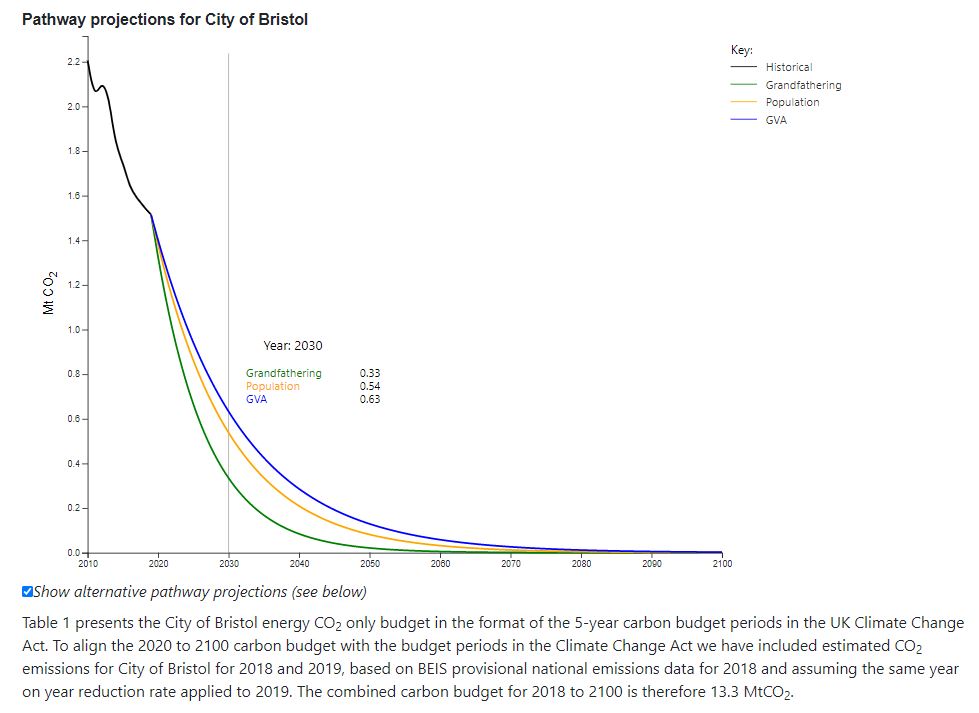
I’ve spent a lot of time thinking, talking about & worrying about the #PlanningWhitePaper & proposed #PlanningReforms over the last 6 weeks. I’ve seen lots of criticism that I agree with about loss of democratic control, but less about potential impacts on the #ClimateEmergency.
The White Paper presents an alarmingly reductionist view of the role of planning, focusing mainly on the delivery and appearance of houses as individual units, and the appeal of an attractive street-scene, rather than holistically #sustainable design and function of entire places
In a societal sense, this is worrying. How places function must be at the heart of planning, before any consideration of the aesthetics of individual buildings. But from a #ClimateEmergency point of view, this reductionist view is potentially catastrophic.
To align with the Paris Accord, we need to reduce our emissions by nearly half compared to 2010 baseline, within the next nine years - achieving this at the same time as trying to deliver the nearly 3m additional homes that Government now claims we need in that same period... 

Reducing emissions at this rate in the context of a supercharged housing delivery target requires absolute transformation of how new communities are built and function. Something like this: theguardian.com/artanddesign/2…
Not only must they be inherently zero-carbon from the outset, they must, wherever possible, make a meaningful contribution to reducing emissions from existing development around them.
But there's little evidence that volume housebuilders can best lead this transformation; indeed, they answer first and foremost to shareholders. The chance of a voluntary shift in delivery, suddenly internalising environmental costs into their business model is vanishingly small.
Therefore, the planning system must be given the tools to demand this shift; the building blocks of our ‘net-zero future’ must pass through the planning system. At the planning stage, the largest number of homes is under the control of the smallest number of actors.
Properly enabled, the planning system also has the regulatory power to prevent unsustainable development. Used well, planning can enable a holistic, place-based approach that meets the needs of communities. Like this. Again. Because it's so good. theguardian.com/artanddesign/2…
But the #PlanningWhitePaper is so vague on how planning can tackle the #ClimateEmergency that it feels like purposeful omission. So, in a spirit of constructive helpfulness, we’ve been working with our friends @theTCPA to show how this new system *could* deliver on climate change
Firstly, #planning reforms *must* start with a legal duty: The new planning regime must bind together the Town & Country Planning Act and the Climate Change Act, to confirm a clear & specific duty that local planning should address #ClimateChange.
This would build on what is an *existing* duty, oft overlooked, already contained in Section 19 of the 2004 Planning Act.
Then, the new system should ensure that #ClimateChange is the pre-eminent policy test in planning, by having the NPPF translate the overall legal duty into clear policy priorities, making #carbon reduction first amongst equals of material considerations in the planning process
Thirdly, local authorities should not be restricted from setting more demanding local targets, and enforcing them, and government should set out a clear methodology for carbon handling in the plan preparation and development management process.
The PWP foreword states “We will build environmentally friendly homes that will not need to be expensively retrofitted in the future”. Laudable, but laughable, given the paper largely focuses on aesthetics and throws in some warm words about ensuring every street has some trees.
It seems that the real vision is for planning to be limited to a walk-on part, with Govt's entirely underwhelming #FutureHomesStandard licensing buildings to be ‘zero-carbon ready’, ready to receive guilt-free zero-carbon energy from a system that magically changes around them.
It’s the work of only a few moments to review this assumption, and wonder what will shape a #zerocarbon grid that will work in real places and around real people, if not the #planning system itself? Government cannot continue with this fantasy. Radical change is needed now.
You can read our full consultation response, laying out our vision for how the government's proposed new #planning system could genuinely tackle the climate emergency here: cse.org.uk/downloads/repo… It's full of good stuff. (And not a gif in sight...)
• • •
Missing some Tweet in this thread? You can try to
force a refresh


